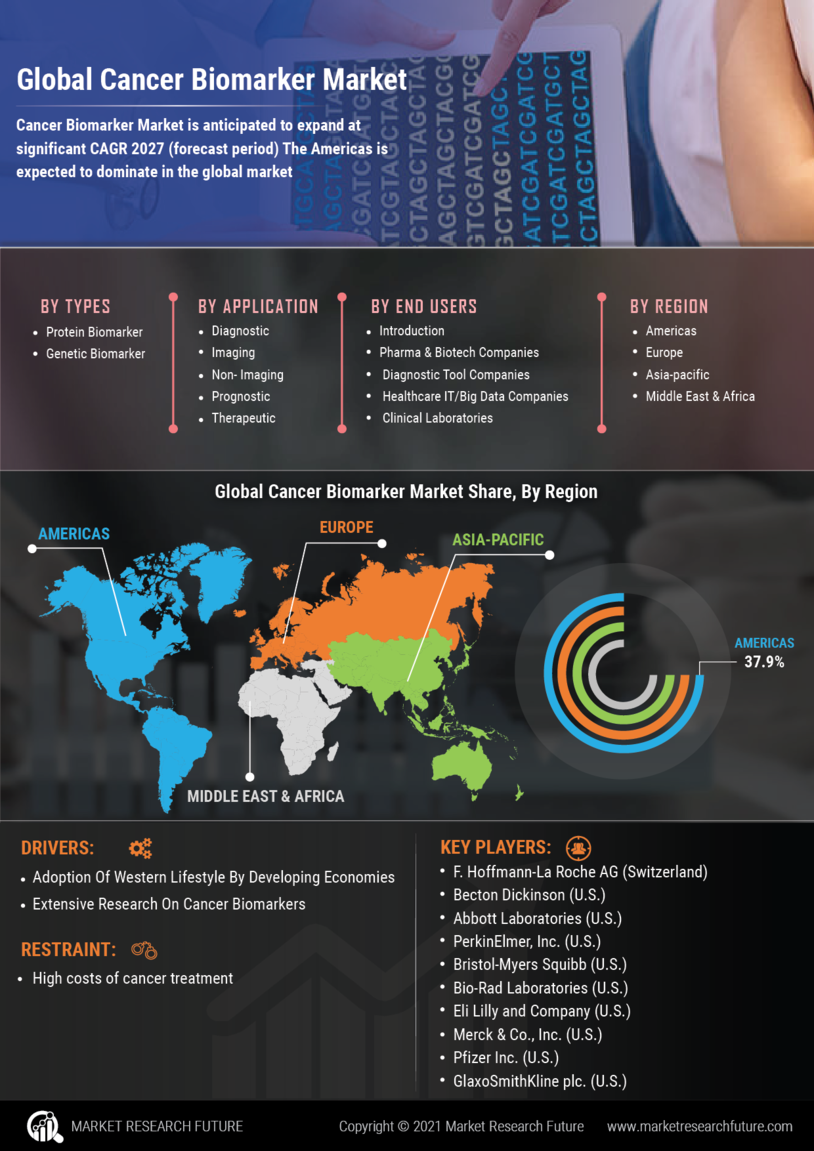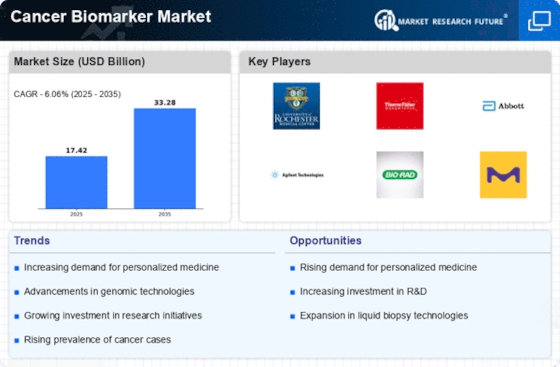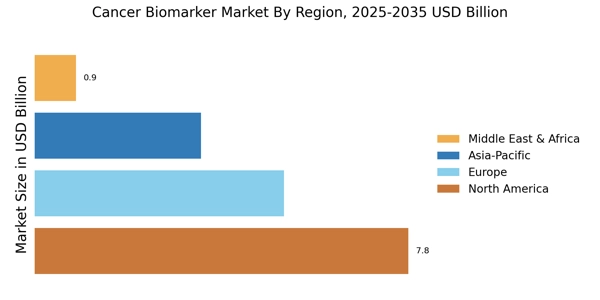Rising Incidence of Cancer
The increasing prevalence of cancer worldwide is a primary driver for the Cancer Biomarker Market. According to recent statistics, cancer cases are projected to rise significantly, with estimates suggesting that by 2040, there could be over 27 million new cancer cases annually. This alarming trend necessitates the development of innovative diagnostic tools and therapies, thereby propelling the demand for cancer biomarkers. As healthcare systems strive to improve patient outcomes, the focus on early detection and personalized treatment options becomes paramount. Consequently, the Cancer Biomarker Market is likely to experience substantial growth as stakeholders invest in research and development to address this pressing health challenge.
Growing Investment in Cancer Research
The surge in funding for cancer research is a crucial factor influencing the Cancer Biomarker Market. Governments, private organizations, and philanthropic entities are increasingly allocating resources to cancer research initiatives. In 2023, global funding for cancer research was estimated to exceed USD 200 billion, highlighting the commitment to understanding cancer biology and developing novel biomarkers. This influx of capital fosters collaboration among researchers, healthcare providers, and biotechnology firms, accelerating the discovery and validation of new cancer biomarkers. As a result, the Cancer Biomarker Market is likely to benefit from a robust pipeline of innovative products aimed at improving cancer diagnosis and treatment.
Advancements in Diagnostic Technologies
Technological innovations in diagnostic methodologies are transforming the Cancer Biomarker Market. The advent of next-generation sequencing, liquid biopsies, and advanced imaging techniques has enhanced the ability to detect cancer biomarkers with greater accuracy and speed. For instance, the market for liquid biopsy is expected to reach approximately USD 5 billion by 2026, reflecting a compound annual growth rate of over 20%. These advancements not only facilitate early diagnosis but also enable real-time monitoring of treatment responses, thereby improving patient management. As diagnostic technologies continue to evolve, the Cancer Biomarker Market is poised for significant expansion, driven by the need for more effective and less invasive testing options.
Increasing Demand for Personalized Medicine
The shift towards personalized medicine is reshaping the Cancer Biomarker Market. Patients and healthcare providers are increasingly recognizing the value of tailored treatment approaches that consider individual genetic profiles and tumor characteristics. This trend is supported by the growing body of evidence indicating that personalized therapies can lead to better patient outcomes. The market for personalized medicine is projected to reach USD 2 trillion by 2025, underscoring the significant investment in this area. As more cancer biomarkers are identified and validated, the Cancer Biomarker Market is expected to expand, driven by the need for targeted therapies that enhance treatment efficacy and minimize adverse effects.
Regulatory Support for Biomarker Development
Regulatory agencies are playing a pivotal role in advancing the Cancer Biomarker Market by streamlining the approval processes for biomarker-based diagnostics and therapeutics. Initiatives aimed at expediting the review of innovative cancer treatments are becoming more prevalent, encouraging companies to invest in biomarker research. For example, the FDA has established programs to facilitate the development of breakthrough therapies, which often rely on biomarker identification. This supportive regulatory environment not only accelerates the introduction of new products to the market but also instills confidence among investors and stakeholders. As a result, the Cancer Biomarker Market is likely to witness accelerated growth, driven by the increasing number of approved biomarker-based solutions.


















